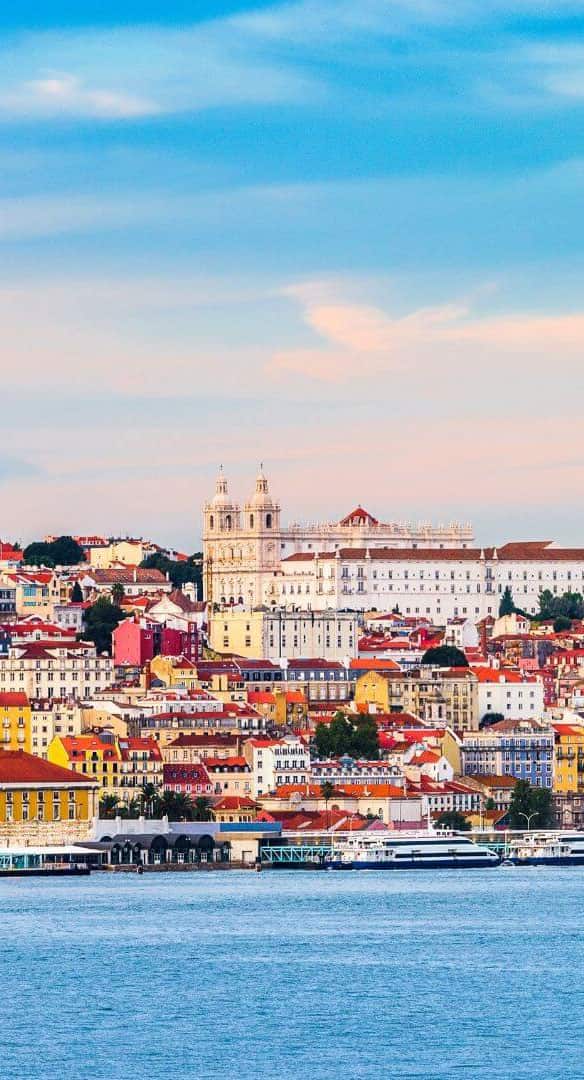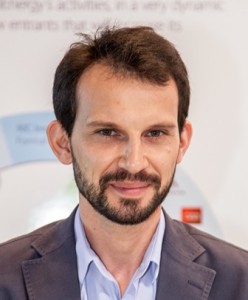RVE.SOL combines business and social development
November 17, 2015
After an early career in telecoms and energy, Vivian Vendeirinho decided to add more meaning to his life… and why not also improve the lives of others?
His idea involved providing local, clean, shared and cheap energy for developing countries. Five years later, RVE.SOL is a source of interest to the biggest international development institutions. We meet with this entrepreneur who wants to reduce poverty through business.
What is the vision underpinning your work?
We embraced the mission of participating in the eradication of poverty through renewable energy. In developed countries, we no longer appreciate the extent to which access to energy affects our most basic needs: drinking clean water and cooking hot meals to stay healthy, adequate lighting for studying or just work a little later… Until recently, in regions with no infrastructure, solutions (where they exist) always had a negative impact on another parallel issue (often pollution). However, renewable energies, and cleantech in general, have matured to envisage local energy services at reasonable costs. So in 2010, we started to devise technical and economical solutions.
Can you tell us about your proposition?
We have developed a stand-alone container the produces clean energy and water: the KUDURA. Topped with solar panels, it integrates several features depending on local needs: electricity production (lighting, phone and computer charging, small businesses etc.), biogas production from local organic waste (with co-production of fertilizers) and water purification. Depending on its power, a KUDURA can serve up to 1,200 residents for a lifespan of over twenty years. It creates three to ten direct jobs on site and many more indirect income generating opportunities.
What are its technical innovations?
The majority of components are selected from among the top articles on the market (the KUDURA is manufactured to ISO9000 standards). Therefore innovation arises mainly in the intelligent integration of various functions to minimize energy consumption and generation cost as far as possible, tied to an innovative payment system. However, we have worked on the biogas module so that it operates with all kinds of organic matter, since cows do not necessarily all eat the same feed everywhere! In fact, our biggest challenge is not technology but in fact economic and social.
Are you referring to your business model?
Yes, in the broad sense. We initially thought of targeting proactive host populations, and hoped that communities would take over the project. The reality is harder: it’s difficult to embrace a business endeavor when one is struggling to survive. Therefore, it’s not possible to sell a module to a community. Accordingly, we switched to a service model, where we remain owners of the KUDURAs.
Which requires a lot more funding…
Exactly. Our demonstrator in Kenya has been running close to perfectly since 2011, and its customers are very satisfied: the technology and the market for energy and water have proven reliable. It therefore remains to fund future implantations, which is not easy because our product is too expensive for the “small” funders who might be interested in single units (Ed. note: units are available fully installed for between €50,000 and €200,000 depending on power and functions). At the other extreme, larger organizations, like the World Bank, are not interested in projects under $10 million… so we are in a kind of “funding gap.” Fortunately, the financial skies appear to be clearing for the close of year, with projects like “Africa Clean Energy Business” from the DFID (Department for International Development, UK), or “Power Africa” led by USAID… We are very optimistic and plan to launch about thirty community projects in 2016!
Why did you decide set up a business rather than a NGO style association?
I think that this creates a different state of mind, both for us, our partners and even amongst our clients. For example, we are not just going from project by project, but are armed with a genuine development plan. Additionally, by involving private investors in the venture, we enjoy a healthy pressure to succeed, as well as guidance. In fact, since 2013 we have met several investors thanks to KIC InnoEnergy (our mentor wanted to invest too!). Business Booster 2014 also allowed us to convince RKW Holding (a private family fund), which fully sponsored our last investment round.
Vision, technology and funding are now aligned: we have no other option but to succeed!
Complementary perspectives
Renato Braz, Business Creation Manager,
KIC InnoEnergy, Lisbon“RVE.SOL appealed to us for two main reasons. Firstly, the rare understanding of the field demonstrated by its founder. His analysis of needs and solutions, in line with local aspirations and realities, should inspire the humanitarian world. Secondly, the team’s ability to deliver modules to high technological standards that are also durable. Lastly, we must mention the strong commercial demand on the part of the communities concerned. We therefore share the vision offered by RVE.SOL and are very confident in its future.”

